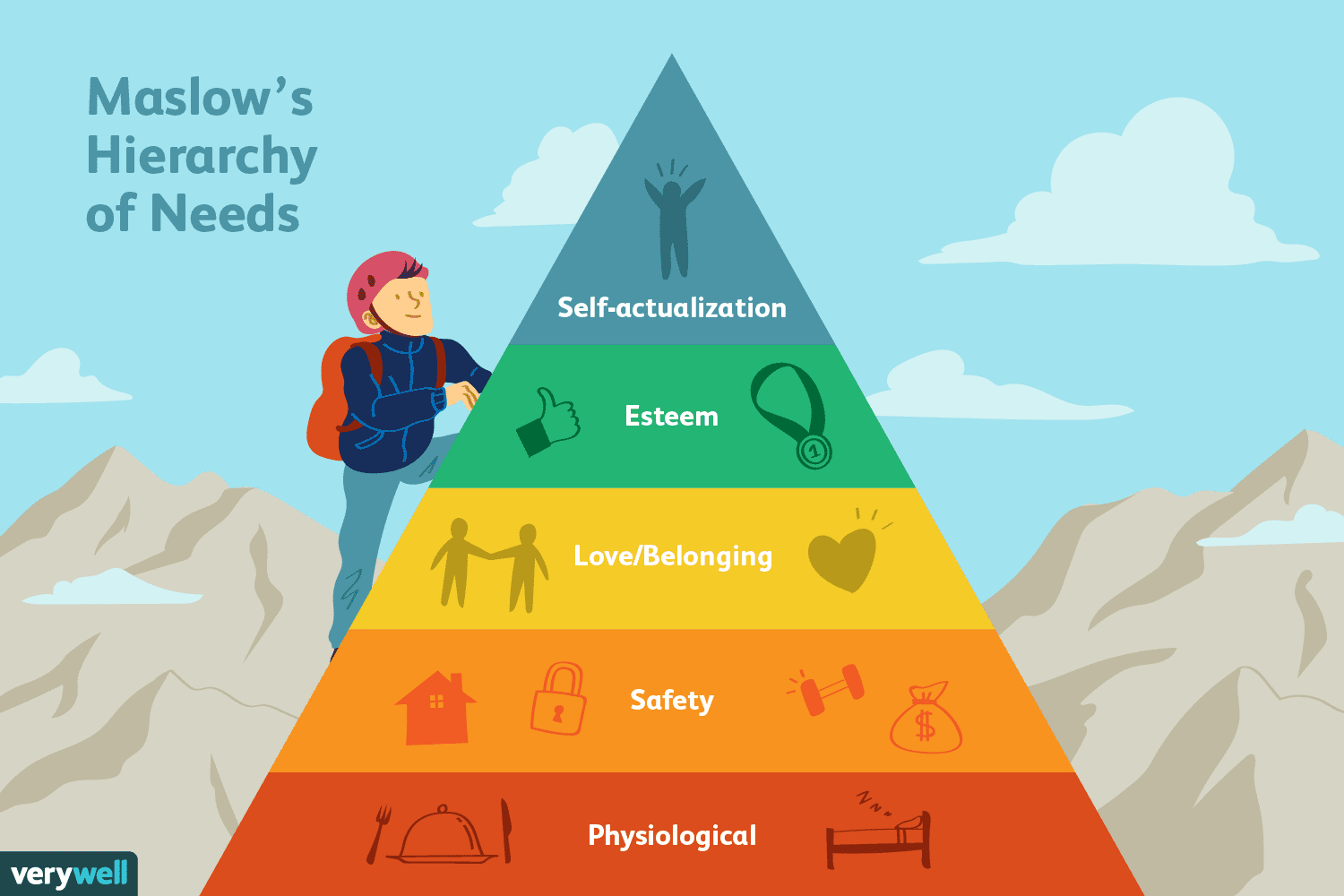Much of a therapeutic boarding school’s curricula is based on Maslow’s Hierarchy of Needs. This theory, first published by a psychology professor in 1943, prioritizes a human’s innate human needs. When one level of need is fulfilled, humans move up to the next level, and so on. Understanding Maslow’s Hierarchy of Needs can help parents like you know what your child’s school is doing in order to help your teen meet challenges. Learning how to deal with life transitions, including setbacks, victories and pain, allows your teen to enter the adult world with a greater potential for success.
Therapeutic boarding schools provide a highly specialized structure and constant supervision for teens with emotional and behavioral problems, learning difficulties, and even substance abuse issues. Helping teens move through the hierarchy of needs allows them to reach a level where they can more positively interact with others, deal with conflicts and boost self esteem.
In the hierarchy of needs, basic things like food, water, shelter and air, or the physiological, must be met first and foremost. If these are not met with certainty and consistency, teens cannot progress toward improving themselves socially because they are too focused on the basics. Therapeutic boarding schools meet this basic level of physiological needs by becoming a trusted place where teens eat well and have their own space. It can also extend into other physical needs, like getting glasses, treating illnesses and getting enough sleep.
Safety is the next level, and at therapeutic boarding schools, this is a critical part of a troubled teen’s needs. Whether peer or family dynamics make a teen feel unsafe, or they are sabotaging their own health through eating disorders, cutting or substance abuse, teens will get the support and counseling they need to feel safe from stress and harm from outside or within. Therapeutic boarding schools stress safety, personal space and individual counseling to help teens feel safe. When teens feel comfortable at this level, they can move on to address more subtle social issues.
With belonging/love, the next level of the hierarchy, teens are re-introduced to healthy relationships with family, peers and others in society, from teachers to neighbors. The desire to belong is very strong in adolescents, so therapeutic boarding schools set up all kinds of clubs, structured activities and mentoring programs. Replacing negative groups like gangs, bad friends or dysfunctional family relationships with more positive ones gives teens a sense of being a contributing member who is valued and appreciated. The ability to receive and give love is a key component of developing healthy relationships.
The previous levels build on each other to reach the esteem level. When teens receive positive attention, appreciation and love, their self-esteem rises. They see themselves as someone with value and worthy of respect. In turn, they gain confidence and are more easily able to give others respect. Therapeutic boarding schools arrange for frequent group sessions, workshops and activities designed to help troubled teens with self-confidence and self-esteem.
The top of Maslow’s Heirarchy of Needs is self-actualization. Essentially, this means that teens have reached a point where they can see the path they need to take in order to become everything they are capable of. They are now able to maximize their potential, choose good physical, mental, emotional and spiritual actions and reap the benefits of those choices. They can enter society as productive citizens, good friends, loving children and eventually, successful adults.
Therapeutic boarding schools that use the Maslow’s Hierarchy of Needs as a starting point in helping troubled teens see much success. Starting with basic needs like food and moving up through areas like belonging, love and eventually self-acceptance, your teenager can gain tools needed to deal positively with life.
For guidance on choosing the right therapeutic boarding school for your family, please contact us at Help Your Teen Now.











0 Comments